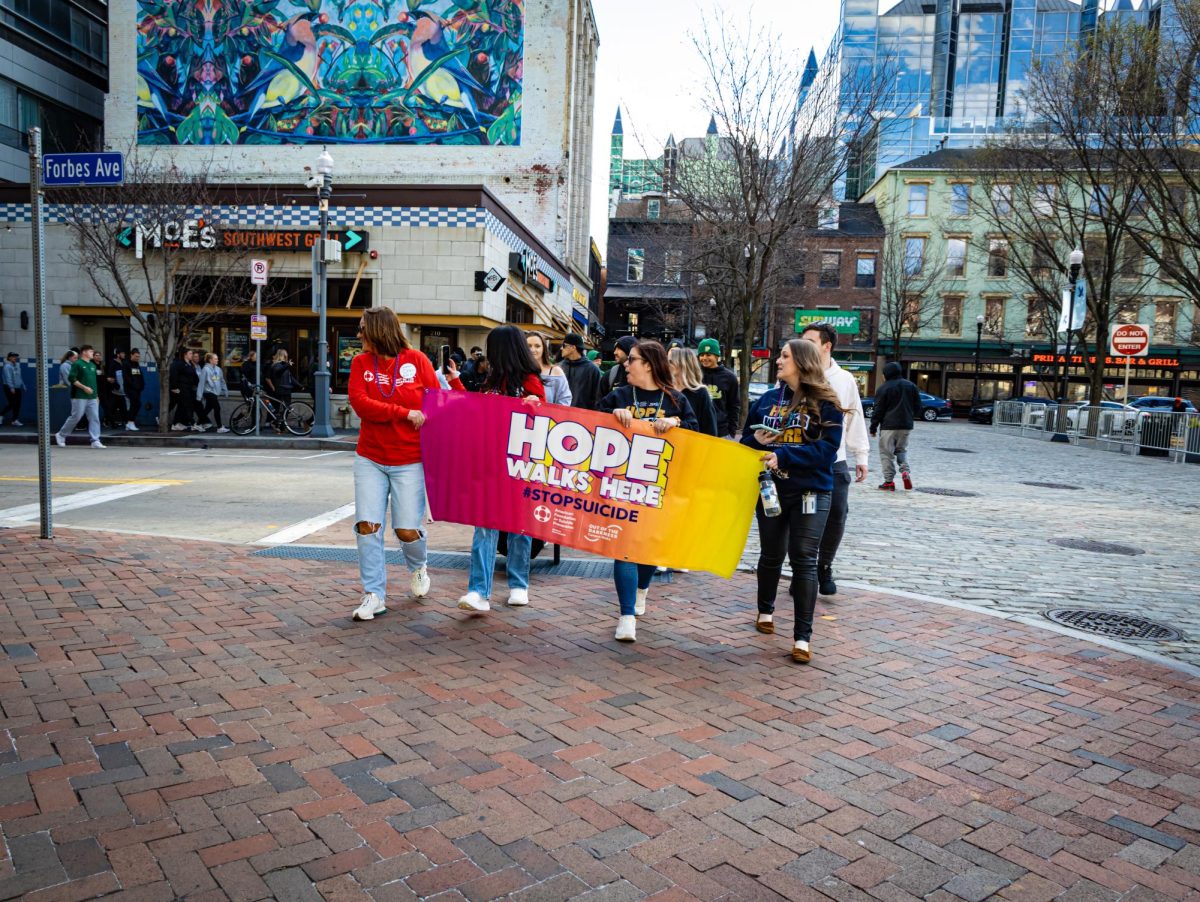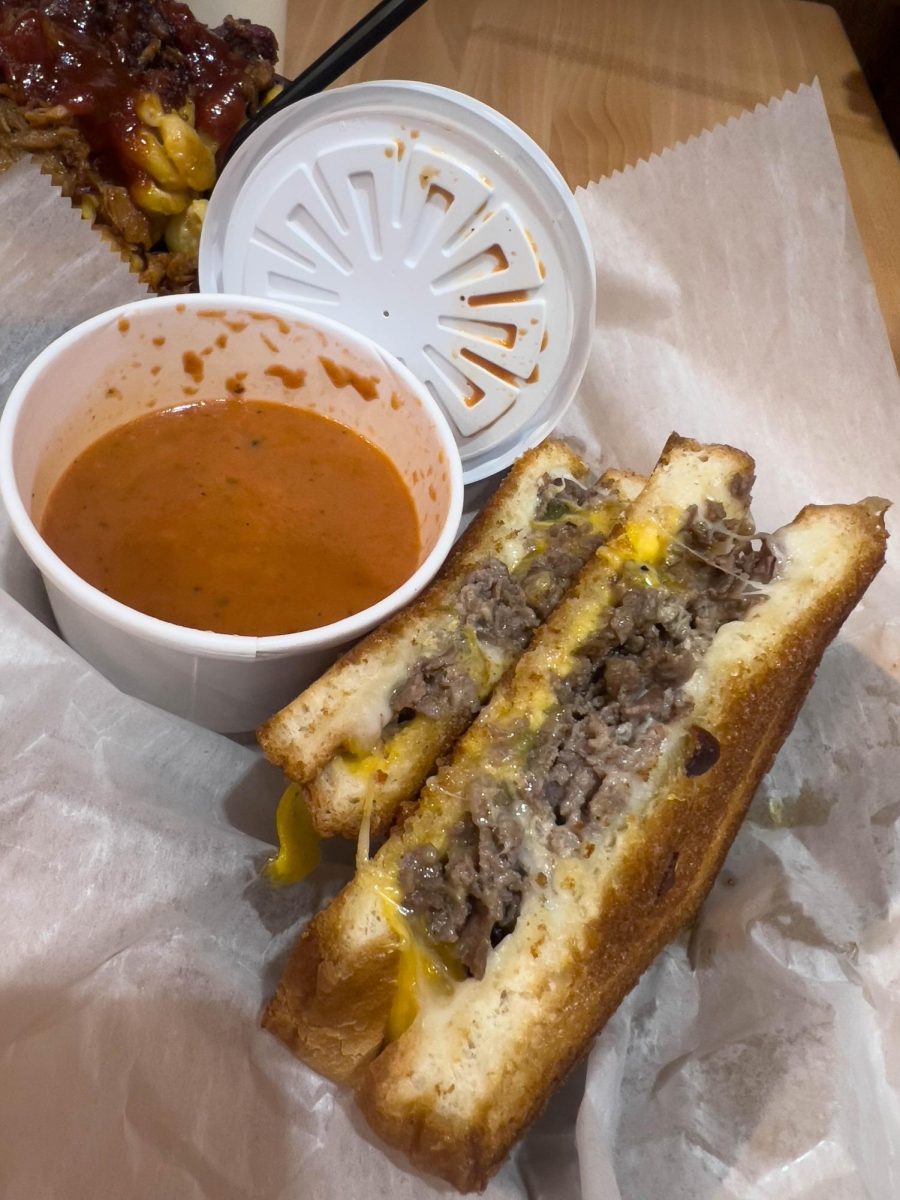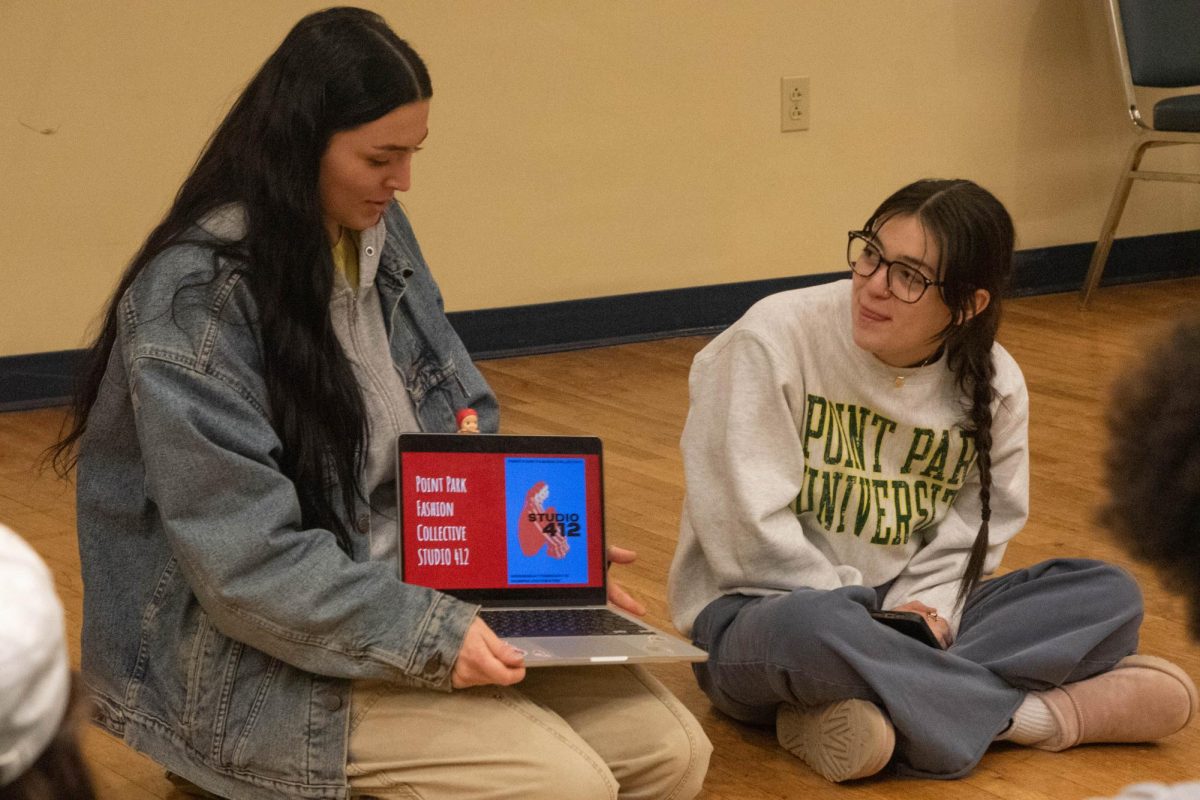
Photo courtesy of Jacqueline Roberts –Kpan
Point Park University senior acting major Dominique Brock depicted more than sisterhood and empowerment amongst the student body when she brought Ntozake Shange’s renowned memorable chorepoem For Colored Girls to full theaters this past weekend.
When asked if she accomplished what she hoped to portray with this pinnacle, Brock said proudly, “in the past four years that I’ve been at PPU, I’ve only seen one production of all black people, and that was Seven Guitars. I think there is little opportunity for black students to get cast, and I don’t think that is fair as it doesn’t showcase what we have. My goal was to have these girls in the show and to have people see that there is talent here. I also wanted to inspire the freshmen who may have had doubts about staying at PPU and by bringing more black shows to campus, because it is needed, I think I accomplished that.”
Brock was adamant about continuing to widen the threshold for the minorities at Point Park University by producing an African American show like this.
“A lot of the time we are overlooked because we are black, and we don’t fit into the shows that they pick. Hopefully this will influence them to bring more shows that we can be a part of,” said Brock.
Junior Te‘Era Coleman, who was cast as Lady in Green, had a lucid objective she set to accomplish when she began her journey.
“I’ve spent my entire life learning about other peoples’ cultures and rarely had the opportunity to learn about my own. There’s a lot of children, black children, who don’t know where they come from, and it’s because the world doesn’t know where we come from. They dismiss it as if it doesn’t matter, so I think there’s an ignorance within our society of really absorbing everyone’s culture. When they don’t give us opportunities here at this school to showcase that, then they will never know. Students will never know, and they’ll never learn because they don’t have the opportunity to. I think what we did was we gave them the opportunity to take something away, and it’s up to them to take the responsibility to change their thoughts, their ways, themselves as artists, themselves as teachers, as a facility and as a program. They’re ignorant because they do not know what they have. And if they knew what they had, they would have so much victory, so much prosperity,” said Coleman.
This pinnacle production exhibited such a miniscule amount of talent from the minorities who were cast as there are not often many productions chosen by the school that offer the entire student body the opportunity to dive deeper into other play types besides Museum Theater. The intricacy and depth of roles in this production ultimately gave light and a platform to this.
Sophomore Amber Jones, cast as Lady in Purple, was upset to know some of her peers were not cognizant of this piece of work.
“I just want people at Point Park –COPA, to know that black plays exist, that black actors exist because a lot of people were getting it confused with The Color Purple and didn’t even know or have heard of For Colored Girls,” said Jones.
Junior Rashida Allanah, cast as Lady in Blue, made it clear that Shange’s chorepoem was not as singular as the title may suggest and humbly said, “having the opportunity to tell the stories of these women and not being ashamed of them made me happy, and having my roommate whose from Italy tell me ‘that was so touching, I could relate to almost every single story,’ to hear that from someone who is from thousands and thousands of miles away made it clear to me that these stories can bring us together. It is not just a colored girl’s experience, or a colored woman’s experience or their rite of passage into womanhood, but a woman’s experience. So to be able to be black and to tell black stories and tell the stories of my grandmother and my great-grandmother and their struggles and not to be ashamed of it, was rewarding enough as I got to do it with these amazing ladies here.”
For Colored Girls who have Considered Suicide when the Rainbow is Enuf, Shange’s 1975 original novel, quickly moved to the stage after receiving such a positive response. Many adapted her work while incorporating drama, music, dance, and prose as seven actresses performed, only being identified upon their vibrant color of the rainbow. The story is embodied by sophisticated long-form monologues that express different obstacles faced by the women including date rape, abortion, domestic abuse and contracting HIV, all by which established an atmosphere that offered a sense of relatability and support from both the audience and cast.
Junior Zhanah Wyche, cast as Lady in Yellow, described the title as meaning more to her than a love letter or homage to the female community.
“All of the rainbow manifests inside of every young black girl, and we have all had an experience. Black women speak so much volume, we have so much depth. Women in general, have so much to say. It is saddening that there’s never really the opportunity to have it be said as often as it could possibly be, or for women to speak their stories. So particularly in the black community there is a hold on discussing things like your mental health, your spirituality, and you don’t discuss certain things or topics, and it is because of that there are black women everywhere that have issues with mental problems, who have issues with their sexuality. They hold it in. It just stays there, and they consider things because they don’t have anywhere to go –they’re lonely, they’re empty, they’re vacant and they feel these things when the rainbow and everything that lives inside of them are what they are supposed to be and it’s enough,” said Wyche.
Senior Melessie Clark, cast as Lady in Red, wanted to leave behind the beginnings of a legacy and was appreciative to say, “just to be able to look at some of the underclassmen in the face after the show and see how they lit up and were inspired is enough, and I hope that they take that and run with it.”
Sophomore Torée Alexandre, cast as Lady in Brown, was delighted to see her set goals be accomplished.
“I wanted the language to be given a voice – you don’t really need to force the language, it’s already beautifully written for you on the page. All you have to do is bring it to life and the words do that if you let them, and I wanted all of us to let the words influence us and let them be understood by the audience as well,” said Alexandre.
Being that this was the only theatrical production she has ever been in during her time at Point Park, Senior Ashley K. Nicholas, cast as Lady in Orange, was greatful that this production was it.
“I am very proud of my identity as a black woman. I take it very seriously, and I have no shame in it. Being that I got to share my black womanhood with the cast and the audience was such a rewarding experience,” said Nicholas.
Junior musical theatre major Christopher Williams was among many students who were moved by the production and offered some kind uplifting words to his peers.
“I saw this piece twice, and it’s a piece that I’ve read, and it’s very near to my heart. As an African American man watching these wonderfully beautiful women of color tell this story just reminded me of the women in my life. It just made me want to go up to every one of them and say ‘you are enough, you are beautiful and you are wonderful.’ It is beautiful to see that celebrated on a stage and let everyone see that whether they acknowledge it or not. You need to know that you are enough no matter what shade, what shape, what size,” said Williams.










